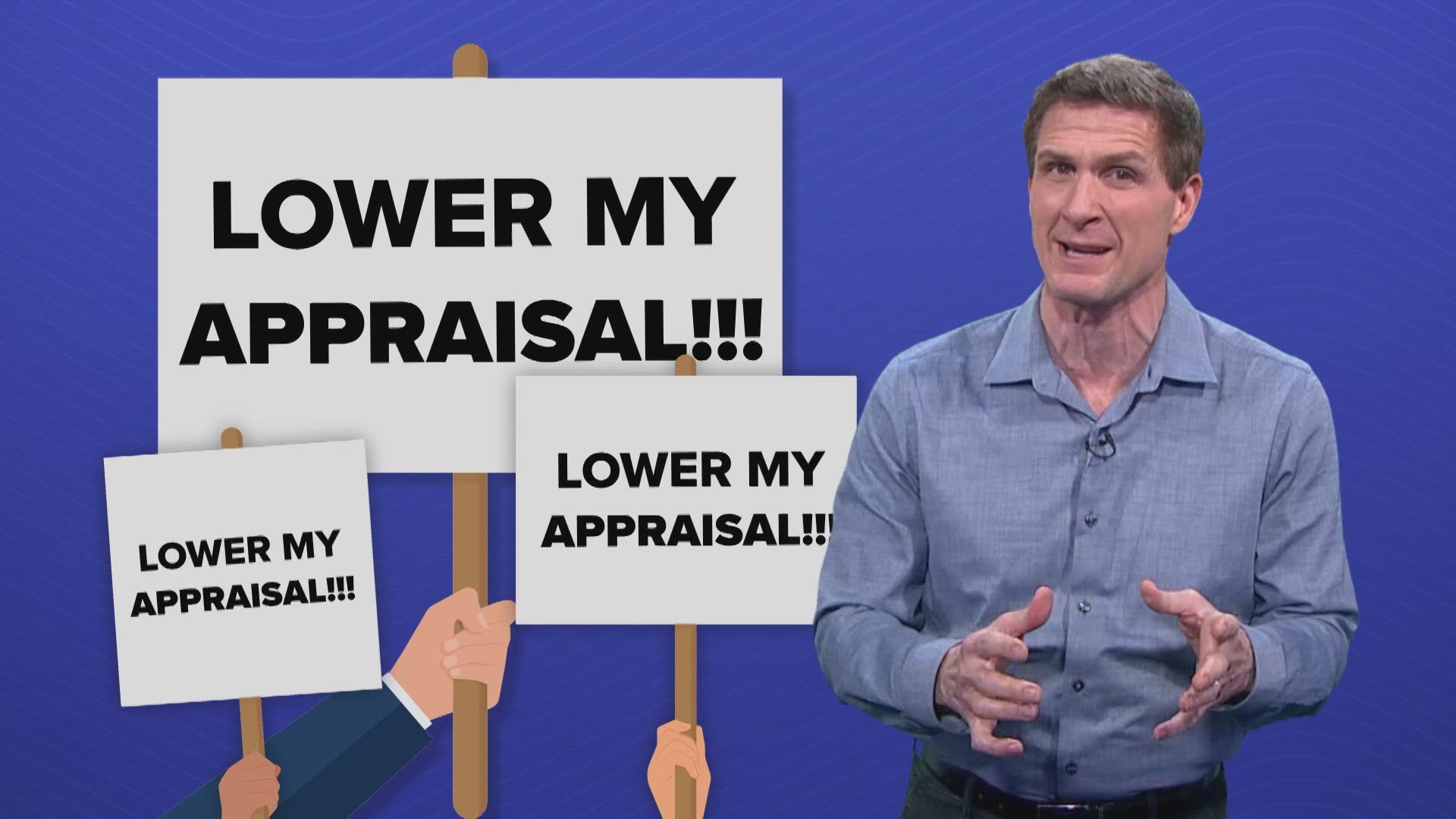DALLAS — In the latest installment of my "Home Schooling" series, where I am sharing important information I learned while getting my Texas real estate license, we are talking about protesting. Peaceful protesting! You do not want to go into an appraisal protest hearing with an adversarial tone. So, deep breath…it’s time to collect your composure and your relevant facts.
Know your appraisal district’s deadline. You generally have 30 days to give notice that you intend to protest. You must give that notification in writing, which you can often do in just a short letter. You can also file an official form from your appraisal district’s website, or you can use this form from the Texas Comptroller’s Office.
Their comps and your comps
Your property appraisal is based on "comps" performed by "comps." Basically, that means your home was compared to home sales near you and that was performed by computers. If you are protesting, you should know the information they used. So, when you protest, ask the appraisal district for any information they would use at your hearing. They are required to provide that to you.
Check out the properties they used for your home comparison. Are there obvious differences in size, quality, aesthetics or location compared to your home? Document that. Also, let them know of any value-reducing problems with your home that may not be apparent on paper, or from just looking at it outside.
And get your own set of comparable properties near you that sold on any day last year. Ask a real estate agent to help you compile those. In many areas last year, prices shot up in the spring, peaked in the summer, and then prices fell -- but so did the number of homes sold. 2022 was an unusual year in that way, so there could be a lot of opportunity to find comps more favorable to you, especially if the appraisal district relied on sales figures from a part of the year before home prices had started to cool.
Preparing for your hearing
Mail in or upload all your documentation to your appraisal district. They might just adjust your appraisal after an informal phone or video chat. Or you may have to go to a formal hearing. Many of those are still being conducted remotely as well.
You can do this mostly on your own. Some homeowners who don’t want to dedicate the time or effort opt to hire a professional or use a service that does it for them with no upfront charge, with their payment coming from a percentage of any savings they are able to get in the form of a lowered appraisal. If you use someone else, just check them out first.
If your home value is $1 million or less, and you have your own recent appraisal from a certified appraiser, the appraisal review board must accept that value or they must prove the value is not right. No matter what evidence you use in your hearing, if you are unhappy with the board’s final decision, you can appeal, usually in district court or through binding arbitration.
A snapshot of how often appraisal protests are successful
If you are thinking about going through the process of protesting, you probably also want to know how often protests are successful.
Once again, this year, I asked around at a lot of the big central appraisal districts in Texas to get that data. A couple of them, Dallas and Travis Counties, say they don’t track that or they don’t release that info.
But these other big central appraisal districts that did provide their statistics help to give us an idea. First, these were the appraisal protest totals these appraisal districts received last year:
- Collin: 99,745
- Dallas: 201,970
- Bexar: 178,415
- Harris: 368,517
- Tarrant: 197,000
- Denton: 105,998
- Travis: 173,891
Again, in Dallas and Travis Counties, we don’t know how many of those were successful protests where the homeowner scored a value reduction. But these are how many were successful in the other counties surveyed:
- Collin: 42,726
- Bexar: 146,490
- Harris: 290,895
- Tarrant: 114,000
- Denton: 77,828
If we just break it down to rounded percentages, we see that where you live greatly influenced the odds that a homeowner would be successful in protesting their appraisals last year. Here are the percentages of appraisal protests that were successful:
- Collin: 43%
- Dallas: Not reported
- Bexar: 82%
- Harris: 79%
- Tarrant: 58%
- Denton: 73%
- Travis: Not reported
If we average the percentages that we have just with these large counties, we get to a 67% success rate. So, two out of three homeowners protesting in these combined counties providing data from last year received an appraisal reduction.

